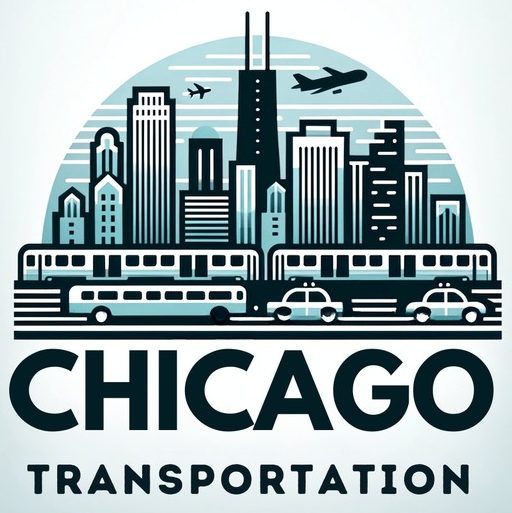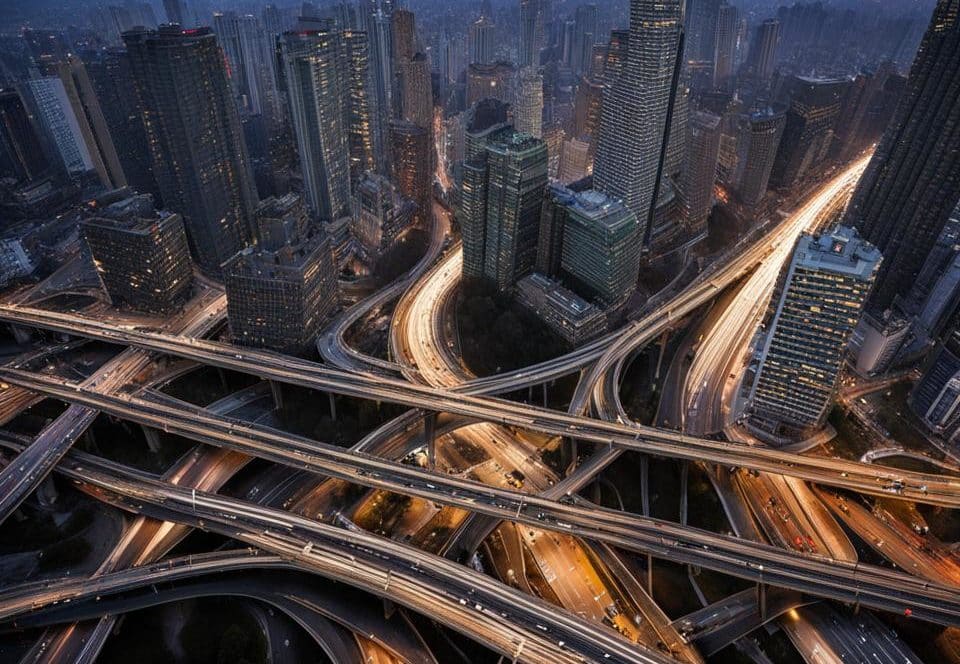Traffic congestion in Chicago has become a growing concern, largely due to the development of highways and the ever-increasing population density. The city has experienced a staggering 6.7% rise in traffic compared to the same period last year, resulting in longer travel times and frustrating delays for residents.
The ongoing construction on major roadways, including the Kennedy, Stevenson, Interstate 57, and DuSable Lake Shore Drive, has only exacerbated the traffic situation. Unfortunately, these construction projects are expected to continue until 2025, further disrupting the flow of traffic and causing more headaches for commuters.
With increased traffic and prolonged travel times, businesses, food deliveries, and even overall productivity have been negatively impacted. It’s clear that alternative transportation options and careful planning are essential for effectively navigating Chicago’s congested roadways.
Key Takeaways:
- Chicago’s highway development has led to a significant increase in traffic congestion and longer travel times.
- Ongoing construction projects on major roadways are expected to continue until 2025, further disrupting traffic.
- Alternative transportation options and careful planning are necessary to navigate Chicago’s congested roadways effectively.
- Businesses, food deliveries, and overall productivity have been negatively impacted by the increase in traffic.
- Chicago’s traffic congestion requires long-term solutions and improvements to the city’s transportation infrastructure.
Factors Contributing to Traffic Congestion in Chicago
Traffic congestion in Chicago can be attributed to several factors. Understanding these causes is crucial in developing effective strategies to mitigate and alleviate the congestion problem.
Recurring Congestion
One of the main causes of traffic congestion in Chicago is recurring congestion, which occurs during peak hours when the demand for travel exceeds the road capacity. During rush hours, commuters flood the roadways, resulting in slow-moving traffic and increased travel times.
Bottlenecks and Insufficient Infrastructure
Bottlenecks, such as converging lanes or capacity limitations, also contribute to congestion by interrupting the flow of traffic. These bottlenecks can cause delays, forcing drivers to slow down or come to a complete stop. Additionally, insufficient infrastructure, including roads and bridges, is another major cause of congestion, particularly in densely populated areas. These infrastructure limitations struggle to accommodate the increasing number of vehicles, further exacerbating congestion.
Inadequate Traffic Control
Variation in traffic flow and inadequate traffic control measures also play a role in Chicago’s traffic congestion. Poorly timed traffic signals and a lack of effective traffic management contribute to delays and disruptions in the city’s roadways. These factors can lead to a ripple effect, impacting the overall traffic flow and worsening congestion.
Nonrecurring Congestion
In addition to recurring congestion, nonrecurring congestion caused by unpredictable events further compounds the traffic situation in Chicago. Work zones, weather conditions, and incidents like accidents or road closures can create sudden disruptions in traffic flow, leading to increased congestion and travel delays.
By addressing these factors, implementing infrastructure improvements, and adopting comprehensive traffic management strategies, Chicago can work towards alleviating traffic congestion and improving the overall commuting experience for its residents.
The Economic Impact of Traffic Congestion in Chicago
Traffic congestion in Chicago has far-reaching economic implications. The productivity loss resulting from delays and increased travel time has a significant impact on businesses, individuals, and the overall economy. According to studies, the cost of congestion in the United States reached $160 billion in 2014, and it is projected to increase in the coming years.
One of the main consequences of traffic congestion is the loss of productivity. As commuters spend more time stuck in traffic, valuable working hours are wasted. This not only affects individuals’ ability to reach their workplaces on time but also impacts business operations. Delays in deliveries and increased transportation costs have a negative effect on logistics and supply chain management. Moreover, the frustration and stress caused by congestion can lead to decreased employee morale and job satisfaction.
The strain on transportation infrastructure is another significant economic impact of traffic congestion. Increased traffic volume and inadequate road capacity put pressure on the existing infrastructure, leading to more frequent maintenance and repairs. These expenses, coupled with the rising demand for new infrastructure projects, contribute to the overall cost of congestion in Chicago. The need for additional investments in roads, bridges, and public transit systems becomes evident as the city’s population continues to grow.
| Cost | Statistics |
|---|---|
| Productivity Loss | $160 billion in 2014 |
| Extra Hours Traveled | 6.9 billion |
| Additional Fuel Consumed | 3.1 billion gallons |
| Projected Cost in the Next Decade | $480 billion for the most congested cities |
In conclusion, the economic impact of traffic congestion in Chicago is substantial. The loss of productivity, strain on transportation infrastructure, and overall cost of congestion affect businesses, individuals, and the city’s economy. To address this issue effectively, it is crucial to prioritize investments in infrastructure improvements, implement traffic management strategies, and promote alternative transportation options. By taking these measures, Chicago can work towards reducing congestion, improving efficiency, and enhancing the overall economic well-being of the city.
Mitigating Traffic Congestion in Chicago
If you’re tired of sitting in traffic and want to find ways to alleviate congestion in Chicago, there are several strategies that can help. Implementing effective traffic management systems is crucial to optimizing traffic flow. By utilizing real-time monitoring and responsive signal timing, we can reduce bottlenecks and keep traffic moving smoothly.
Another solution to consider is embracing alternative transportation options. Public transit, such as buses and trains, can help reduce the number of cars on the road. Carpooling and ridesharing services are also great options for minimizing traffic congestion. Supporting and encouraging these alternatives can help alleviate the strain on our roadways.
Investing in infrastructure improvements is another key aspect of tackling traffic congestion. Expanding road capacity and enhancing public transit systems can provide long-term solutions to alleviate congestion. By prioritizing these improvements, we can create a more efficient and reliable transportation network in Chicago.
Lastly, implementing policies that promote flexible work schedules and remote work options can help distribute traffic demand more evenly throughout the day. By reducing the number of people commuting during peak hours, we can ease congestion and improve the overall commuting experience for everyone.

